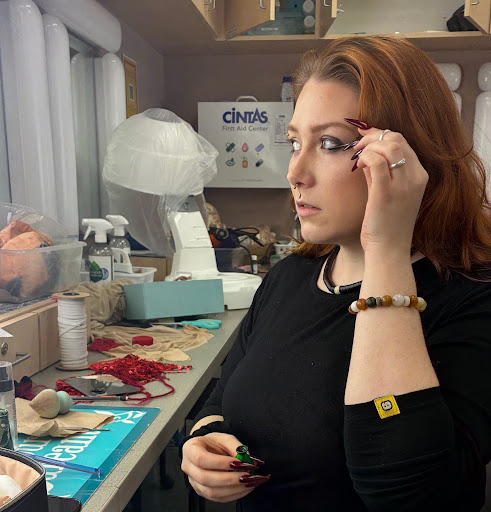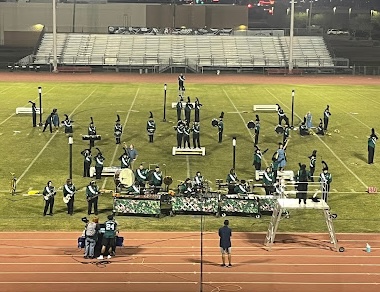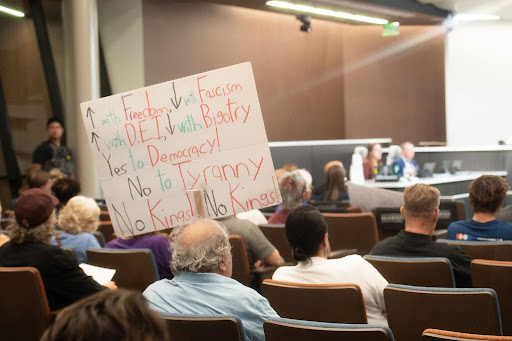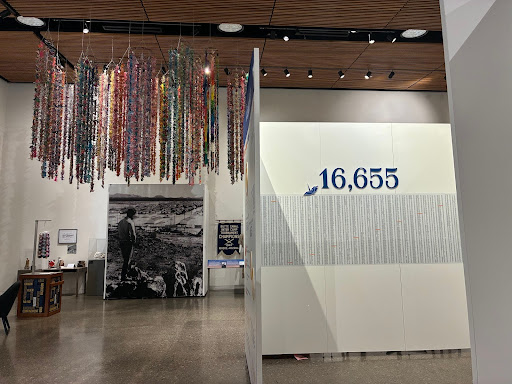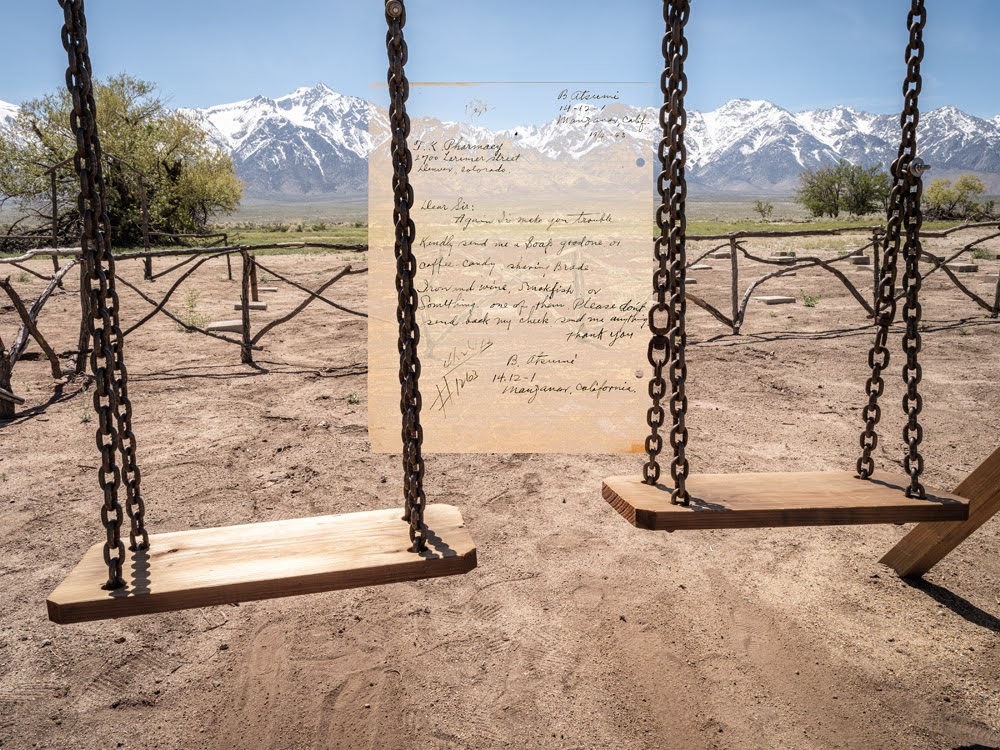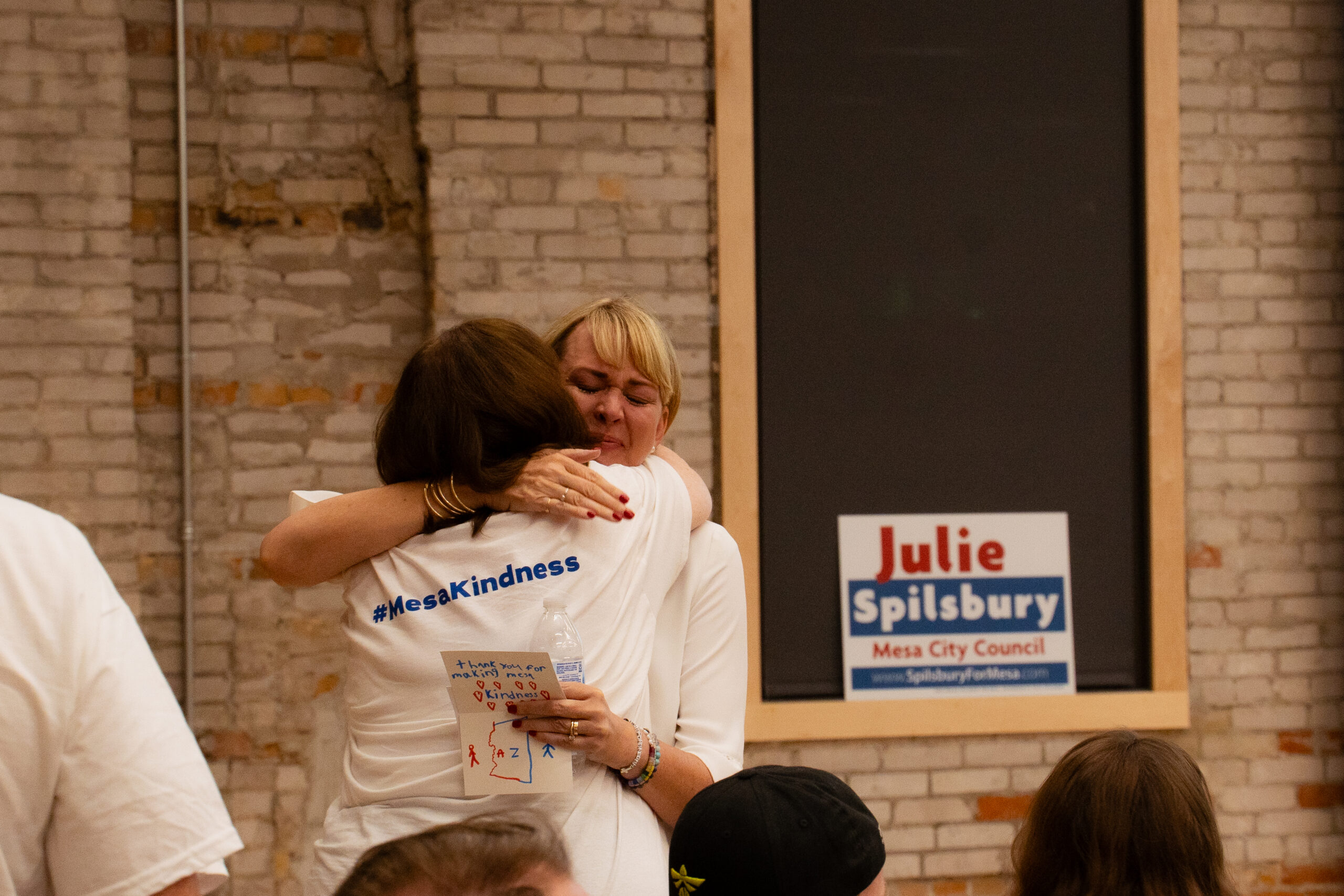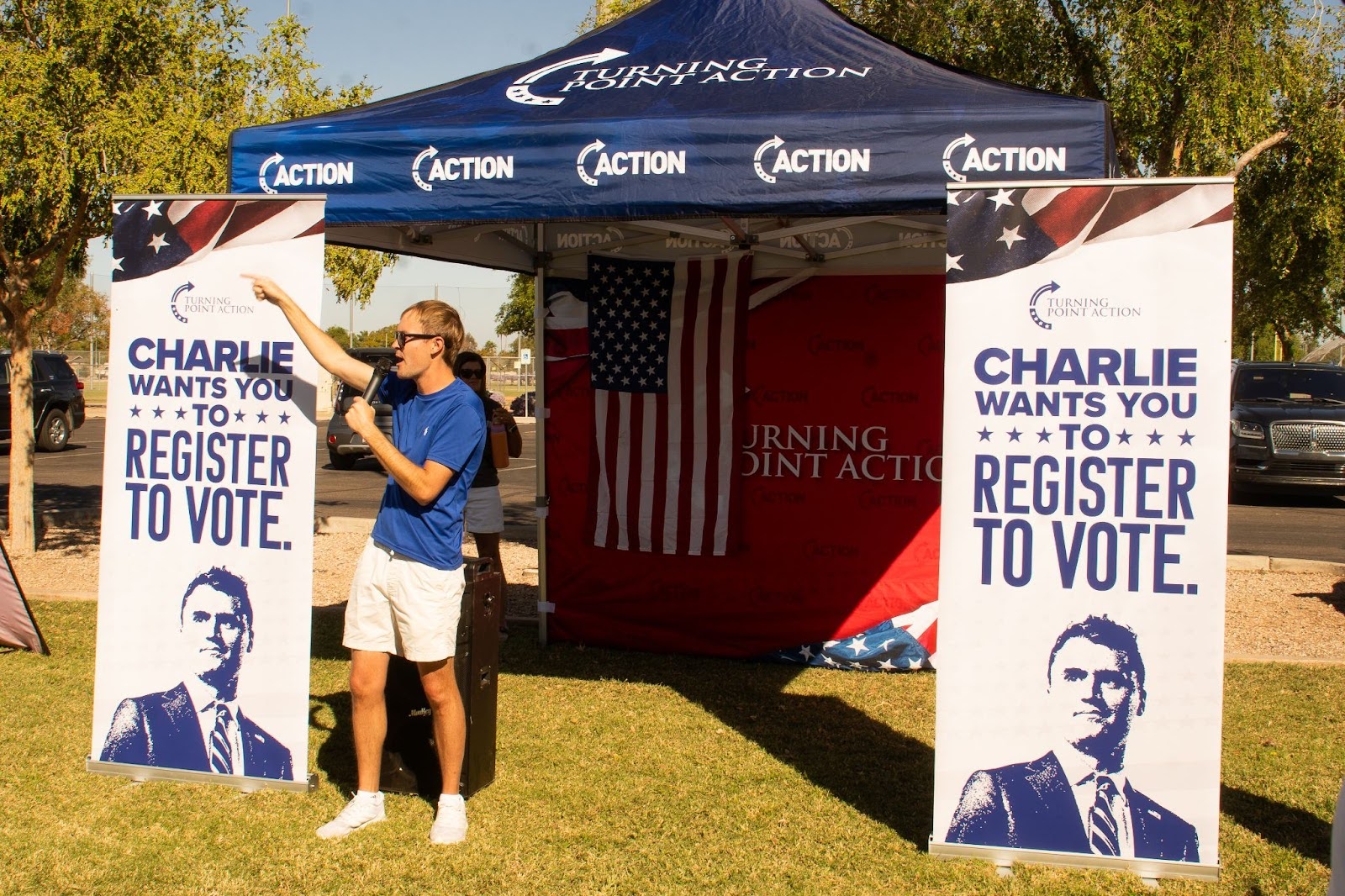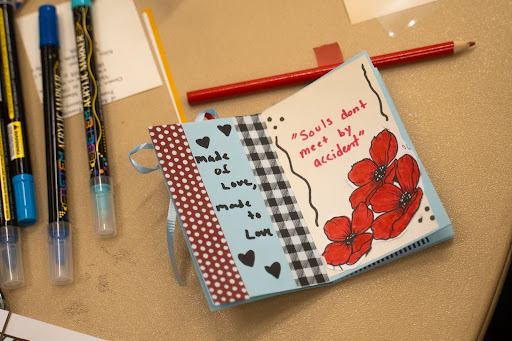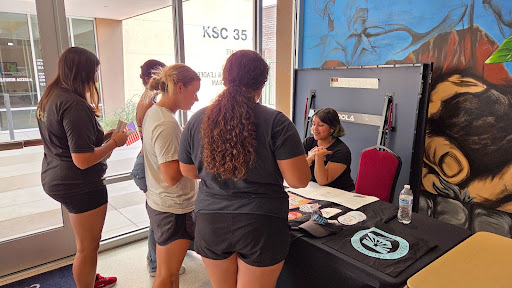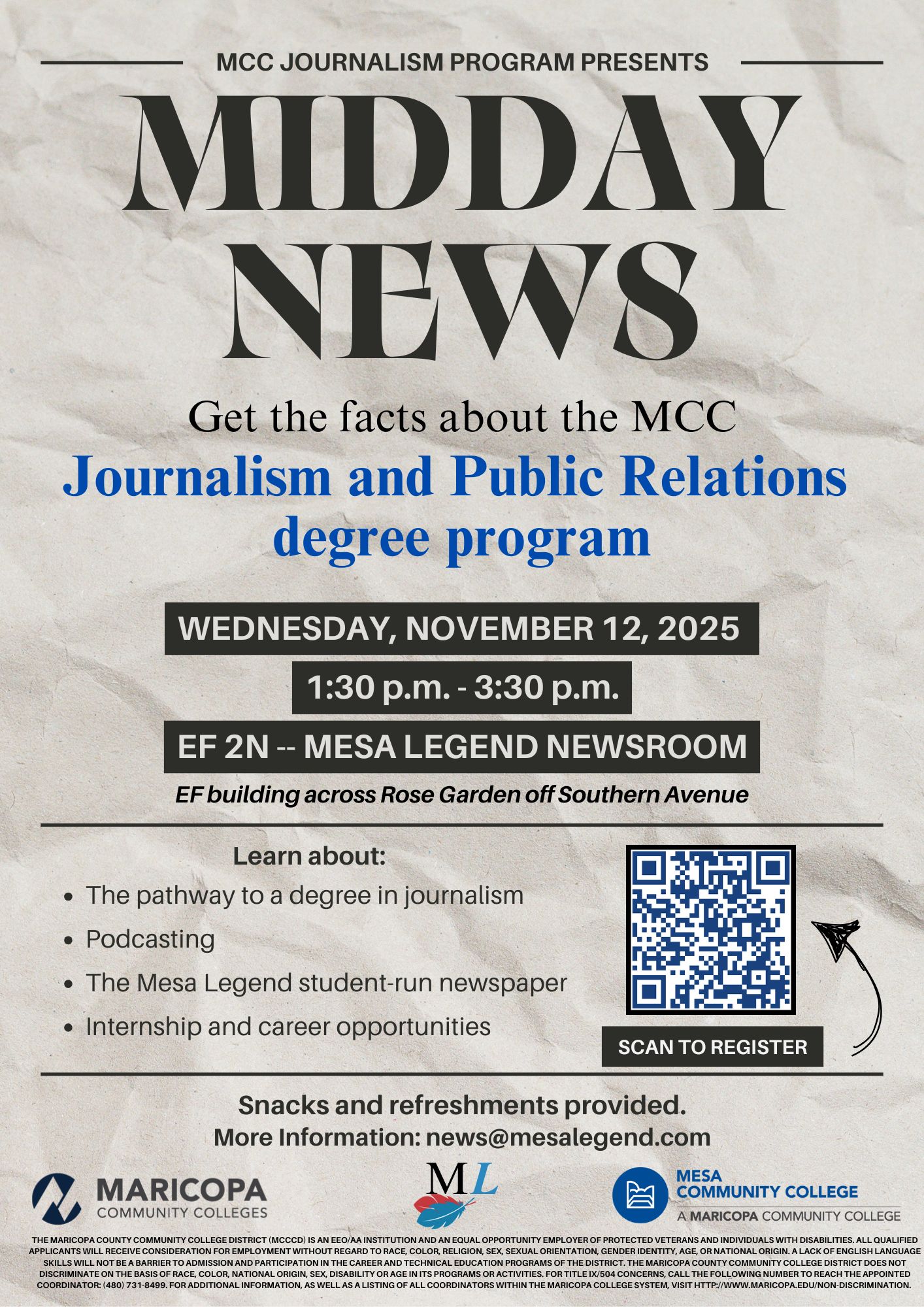22,000 people join together to march
Sydney Ritter
Mesa Legend
The first anniversary of the Women’s March, a five million person peaceful protest that spanned across not just the country but the globe, was celebrated this past weekend with the second annual Women’s March. Around 22,000 men, women and children showed up in front of the Arizona State Capitol in Phoenix in support of female empowerment. The “Women’s March to the Polls” had the idea to get people registered to vote in the upcoming election on November 8, 2018. Many candidates running for office in several districts were also there to meet the thousands of marchers. Many und represented groups were present for the march to raise awareness for the many native women who go missing every day.
Wenona Benally, a Navajo member of the Arizona House of Representatives and one of the speakers at the march, told the story of the murder of Loreal Tsingine to the crowd. “We are strong, we are beautiful and we are here today,” she spoke. “We march in solidarity with all of you.”In a Facebook post to the Women’s March event, march organizer Eva Burch said last year’s event was mostly a protest, whereas this year it’s about volunteering, voting and making an impact in the midterm elections. Many attendees browsed dozens of tables representing organizations and candidates ranging from Planned Parenthood of Arizona and the ACLU to community efforts including Stand Indivisible Scottsdale, along with volunteers were asking people to sign their petitions. Marchers Samantha Gilbert, Mackenize Mathus, and Amanda Dugie went there together for the first time. “In this age of information and technology, it is a choice to be uninformed. You just have to keep your head up and your ears open,” Gilbert said.
“Education should always be a top priority and we should never give away money to anything other than the children of the future,” Amanda Dugie added. “That’s why I am marching here today.” The march is important for all women and men alike, even here at Mesa Community College (MCC). MCC Sociology Professor Vanessa Perkins thinks that these protests are vitally important to women and the men who stand by their side. “Women have a voice, they are learning that they have a voice. Men’s support, I think is essential. Many of these women are married to men or they are in relationships with men and to have them not support them is really harmful,” Parkins explains. “I think men are given their voice, they are being very supportive. I think we are seeing that in a lot of movements right now with a lot of inequality in pay, that men are supporting the women.”
She gives the example of Mark Wahlberg and Michelle Williams. The two actors were required to reshoot the movie All The Money in The World after one of their actors, Kevin Spacey, was disgraced by allegations of sexual harassment and was dropped from the movie entirely.
For the reshoots, Wahlberg was paid $1.5 million while his costar, Williams, was only paid $625,000. Days after the news broke, Wahlberg announced that he was going to donate the money he made from the movie to #TimesUp, the legal fund for sexual abuse and harassment victims that was established late last year, in Michelle Williams’s name. “I think this movement has significantly impacted how people will vote in the future. I think particularly for women and minorities we will see a change in terms of how people vote and I think it will have an impact,” Perkins said.
Along with Phoenix, several others cities around the United States joined in their own march to get people registered to vote whether young or old. According to New York City Mayor Bill de Blasio, more than 200,000 protestors attended. In Los Angeles, 600,000 attended according to Mayor Eric Garcetti and 300,000 Chicago marchers took to the snow-covered street to voice their concerns to their government officials. While there were still people there to protest against the Trump administration and to get the 45th president impeached before his second term, this years march was to get people registered to vote and to get people excited to vote.
“This is your democracy, nobody is going to speak out for you so it is your responsibility to speak for yourself,” said the Maricopa County Recorder’s Office Community Relations Team Leader Christine Dyster. “If you have any further questions about voting go to Maricopa.vote, if you need to update your registration or register to vote you can go to servicearizona.com. Overall, it’s your voice, it’s your right to use it or not,” she added.While protests and marches do not happen every day, the overall message of the march is to get out there and to not forget that your voice is heard and then it matters. Run for office, volunteer at a local hospital, make a difference in the world. Last year the women of the world were marching, this year they are running.
